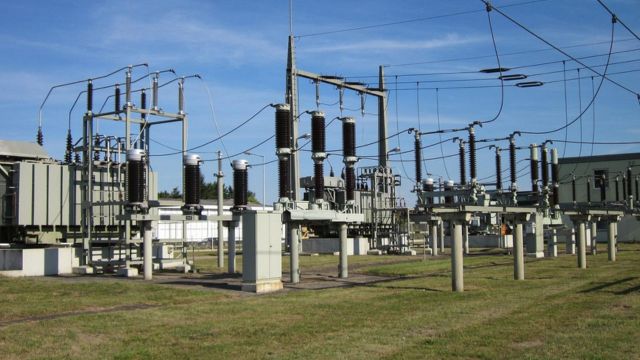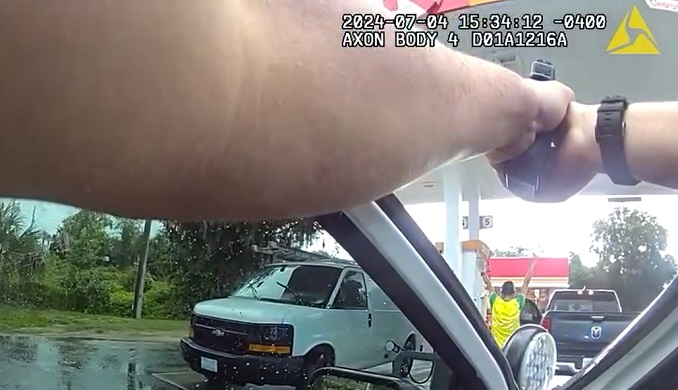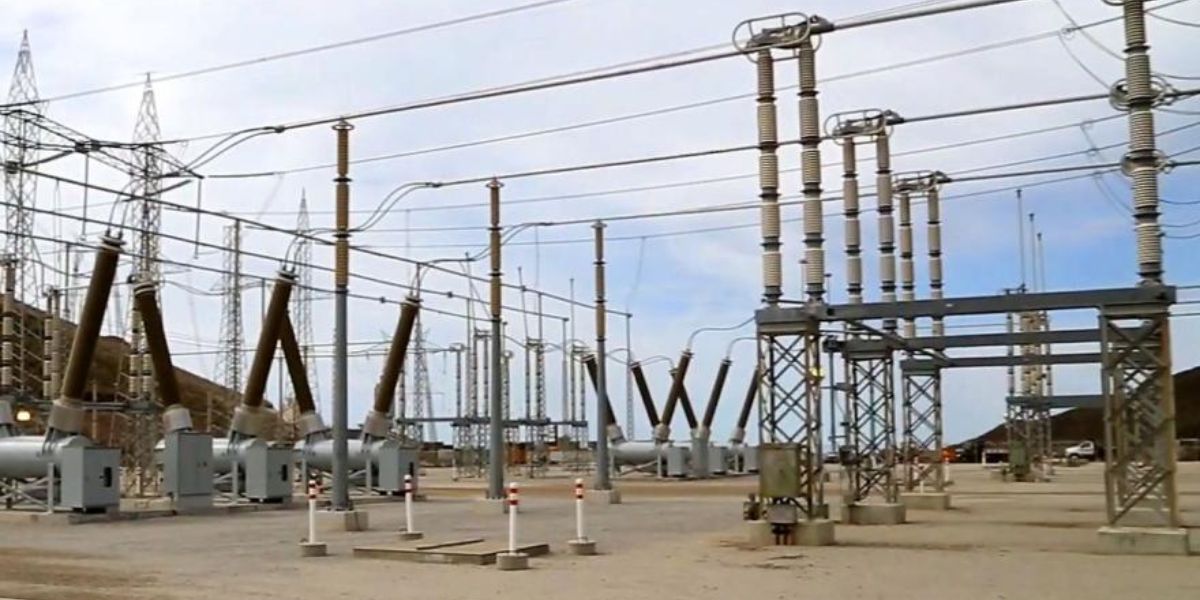Driving New Innovation! Indiana OED Supports Local Energy Ventures With $700k
THE COUNTY OF MARSHALL, INDIANA – Nearly half of the $1.47 million in efficiency awards from the Indiana Office of Energy Development will go toward a few local energy projects in the counties of Marshall, Elkhart, St. Jospeh, and La Porte, the department said on Wednesday.
The grants are meant to acknowledge a range of initiatives that support conservation and energy efficiency initiatives.
The federal Energy Efficiency and Conservation Block Grant program is where Indiana gets its cash for the incentives. Indiana municipal government entities could get grant funding.
- Auto Insurance Shopping Rises in Response to Soaring Insurance Rates: Report
- Avoid These 7 Missteps When Refinancing to a Lower Mortgage Rate
- Rising Home Prices Amid Slight Mortgage Rate Dip: Analysis
- Fresno County’s Groundbreaking Initiative: $500 Monthly Payments in New Guaranteed Income Program, Here is Who is Eligible
- Unlocking Financial Freedom: 5 Reasons to Opt for Personal Loans in Credit Card Debt Repayment
In his statement, OED Communications Manager Greg Cook indicated that beneficiaries of grants might use them to improve energy conservation and efficiency in their local communities. “Categories include efforts in energy planning, energy audits and efficiency upgrades for publicly owned buildings, and electric transportation for communities.”
The Indiana OED’s final approval and successful negotiation are prerequisites for grant awards, according to the OED.
- Will Everyone Get a $12,000 Stimulus Check in 2024? Find Out Eligibility
- $6400 Stimulus Checks in 2024: What You Need to Know About Eligibility and Payment Dates
- IRS 4th Stimulus Check 2024: Comprehensive Guide to Eligibility and Payment Dates
- 3 Smart Moves to Make Once Your Savings Reach $50,000, Here Are Crucial Actions to Take
- 3 Effective Ways to Pay Off Student Loans on a $50K Salary or Less, Know Here!
Executive director of the Indiana Office of Energy Development Ryan Hadley stated, “We are excited to announce our selection of these communities and their thoughtful proposals outlined in their applications.” “Impressive energy solutions require creative local thinking. Practical, original ideas are advantageous to all.

The list of local government entities chosen for the EECBG program, along with project summaries related to it, is as follows:
The City of Plymouth has allocated $225,367 towards the purchase of three Ford F-150 Lightning Pro Work Trucks. The purpose of this purchase is to assess the viability of electrifying the whole municipal fleet in three departments: the Street, Wastewater, and Building Departments.
SEE MORE – “NEW Vision?” Michigan City Opens Doors For Downtown Project Proposals
Four more city-owned charging alternatives will also be purchased and installed by the City of Plymouth. Identifying and evaluating the light-duty electric pick-up trucks’ scalability through use cases and duty cycles is the aim of this research.
Howard County ($200,000) – Howard County wants to hire a qualified energy auditor to provide a thorough evaluation of the county’s asset portfolio, which includes its real estate holdings. By using these audits, Howard County hopes to educate community stakeholders, help prioritize projects, and provide residents and constituents with pertinent information. Selecting and evaluating the properties and assets that will help the county save money on energy use is the aim of this initiative.
Tippecanoe County ($181,940): To optimize efficiency and energy savings, Tippecanoe County intends to engage a qualified energy auditor to evaluate the energy usage of twelve county facilities and offer recommendations for improvement priorities. The initiative aims to reduce carbon emissions, and load on the electrical grid, and replace old, inefficient equipment with newer, more energy-efficient equipment by creating an energy reduction strategy.
The goal of the Goshen City ($153,075) is to hire an insulation company to provide the city’s offices in the Annex Building. With the building’s historic charm preserved, the project aims to successfully refit the roof with insulation to help with long-term maintenance and lower energy costs.
Marshall County($154,333) — The Marshall County Highway Department intends to buy two Ford Lightning Ext F-150 vehicles and two charging stations to be set up in the center garage. By comparing energy efficiency, cost savings, and duty-cycle performance, the research aims to establish the viability of fleet electrification by swapping out two gasoline-powered trucks with new electric vehicles.
The City of Nappanee $127,225) –To assess the viability of gradually electrifying the whole municipal fleet, the City of Nappanee is seeking to buy one electric work vehicle and one electric SUV. The City also wants to install four new fleet chargers at City Hall and wants to buy them. With a focus on differentiating duty-cycle performance and use cases, this research will find and evaluate the scalability of electric vehicles.
Jefferson County $117,600) – Jefferson County wants to install energy-efficient LED lighting and spray foam insulate its District 9 distribution warehouse. Reducing energy usage by almost 50%, improving worker comfort and productivity, increasing sustainable practices, safeguarding emergency supplies from abrupt temperature fluctuations, and reallocating energy savings toward community resiliency are all objectives of the project.
The Michigan City Sustainability Commission intends to hire a reputable renewable energy company to evaluate and schedule solar installation at the Michigan City Zoo, Washington Park, and surrounding city assets. The project will cost $98,000. Lowering carbon emissions, conserving energy, and cutting the city’s operating expenses are the three main objectives of the initiative.
The Gentryville Police Department of the Town of Gentryville is looking to replace its retirement-age vehicles with two Ford Lightning XLT 4WD Extended Range electric cars, and they are willing to pay $74,754 for them. At the Police Department, the town will also buy and install two 240-volt charger depots. The Department will be supported and outfitted with an effective fleet of vehicles to replace its aging assets as a result of this grant.
Walkerton – $72,062 To facilitate the possible adoption of an all-electric police fleet, the Town of Walkerton intends to purchase one Chevrolet Blazer EV, equipment for police upfitting, and one Level 2 Charging Station, all of which will be placed at the Police Department garage within the Municipal Center. Studying the duty cycle, cost savings, and energy efficiency is the project’s main objective. Sharing the findings with other towns and the general publicize the other goals.
Hobart ($70,000) – To reduce energy consumption by 60%, the City of Hobart plans to hire a contractor to replace all its high-pressure sodium streetlights with LED models. By improving light quality, the project aims to lower energy and maintenance costs while also raising community safety.
Within two years or fewer, each project is expected to be finished.
“The Indiana OED develops and implements grant funding on a variety of factors, with a focus on the state’s five pillars of electricity policy: affordability, reliability, resiliency, stability, and environmental sustainability,” the agency stated.











